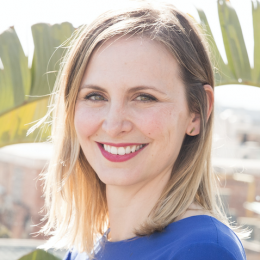A conversation with Ibrahima Mbacke, LIFI LED International Business Development and Partnerships
Can you tell us the story of LIFI LED?
LIFI LED is a company founded in Ivory Coast by Norbert Ange Frederick Balma. He is an engineer in electronics and computer science with experience in international companies including Thales and Orange.
In 2014, he was working in Ivory Coast when he went to visit one of his father’s plantations which wasn’t producing much. This plantation was hundreds of kilometres from Abidjan and he was shocked to find that in the 21st century he was cut off from the world. He had no electricity and no connectivity.
When he went back to the city, he made the decision to become an entrepreneur in the renewable energy space and he started working with LIFI technology. From 2014 to 2017, the company was in research and development of the first prototypes, and by 2017, it began to operate connecting the unconnected.
Our mission is to bridge the digital divide and energy deficit, via off-grid solar high-speed internet, and smart cities.
LIFI LED has activities in several African countries including Central African Republic, Madagascar, Gabon, Senegal (where I am co-Founder), Liberia and soon in Nigeria, Algeria, Morocco, etc.
Tell us a bit more about the tech you work with
LiFi (Light Fidelity) is a wireless communication technology that uses the light spectrum to transmit data at high speed. Wi-fi uses radio frequency, whereas LiFi uses the modulation of light intensity.
LIFI LED provides efficient off-grid solar products with light (via LED lamps) and high-speed internet that can connect up to 1000 people outdoors. It’s compatible with 99% of smartphones and computers, democratising access, and it can be integrated into existing infrastructures while enabling remote monitoring.
It offers many advantages: it’s basically wifi via LED light but without radio waves. LIFI LED technology and indoor and outdoor products are compatible with other wireless technologies ( WiFi, 4G, 5G, Bluetooth, infrared).
Our solar street lights, for example, provide public lighting, and high-speed connectivity with integrated sensors for climate and environmental data. It measures carbon emissions, and fine particles in the air and can forecast with precision rainfall, wind speed and sunshine. All this data is collected in real-time, analysed with machine learning and AI tools and sent to users.
Do you work with communities and institutions then?
Yes, our biggest project right now is in Gabon, where we will be electrifying and providing high-speed internet to 100.000 households in rural and periurban areas. In Ivory Coast, we will be taking our technology to 9.000 villages.
We are able to do this by working with public institutions, development partners, and private companies. We also fund some of the projects ourselves. We install and own the technology and people can buy daily, weekly or monthly passes to use it.
We usually install a satellite dish per village connected to a LIFI LED system (LiFi street lights) that sends the connectivity outdoors and to households (via LiFi solar home systems). We work in rural environments, but also urban since private companies are very interested in our services. LiFi offers fast and secure connectivity.
Integrated IoT sensors collect data to forecast emissions and pollution rates, which help governments make adequate policies. In the rural environment, LIFI LED tech enables farmers to access educational content, as well as students. We currently have a project to electrify and connect to high-speed internet health centres and schools in Ivory Coast.
How are you looking at your impact?
We are contributing to energy access, especially in rural areas, helping to connect the unconnected and bridging the digital divide. We enable financial inclusion and we offer users a lot of information through the remote monitoring included in all of our solutions.
Currently, we are serving over 50.000 people, and with our project in Gabon, we’ll be reaching more than 500.000.
Have you faced additional challenges during COVID?
We have had to be very resilient and figure out the logistics to import the different components with the challenges in the supply chain, there has been a slow-down in deployment, an increase in prices, staff difficulties… it has been and remains a challenging time.
You are part of the ELEVATE program: how has your experience been so far? How do you think GOGLA can support the sector?
We joined ELEVATE to access funds, and improve our communications and scale. We are learning a lot from it. We are having contact with peers from the sectors and accessing tools that are supporting our business development.
GOGLA can continue to support us in these same aspects: amplifying our communications, accessing funds, and improving our financial capacity so we can fulfil our goal to produce our equipment in Africa.
What does the future look like for your company?
Our future looks bright. We are very optimistic about it. We want to make Africa a smart continent, so we would like to expand across Africa, and beyond. We have many municipalities interested in our smart solutions.
What would you like to see happen in the sector?
We would like the final customer to be able to afford our products and solutions. For that, we’ll need to establish ventures and partnerships with other actors and produce locally.

